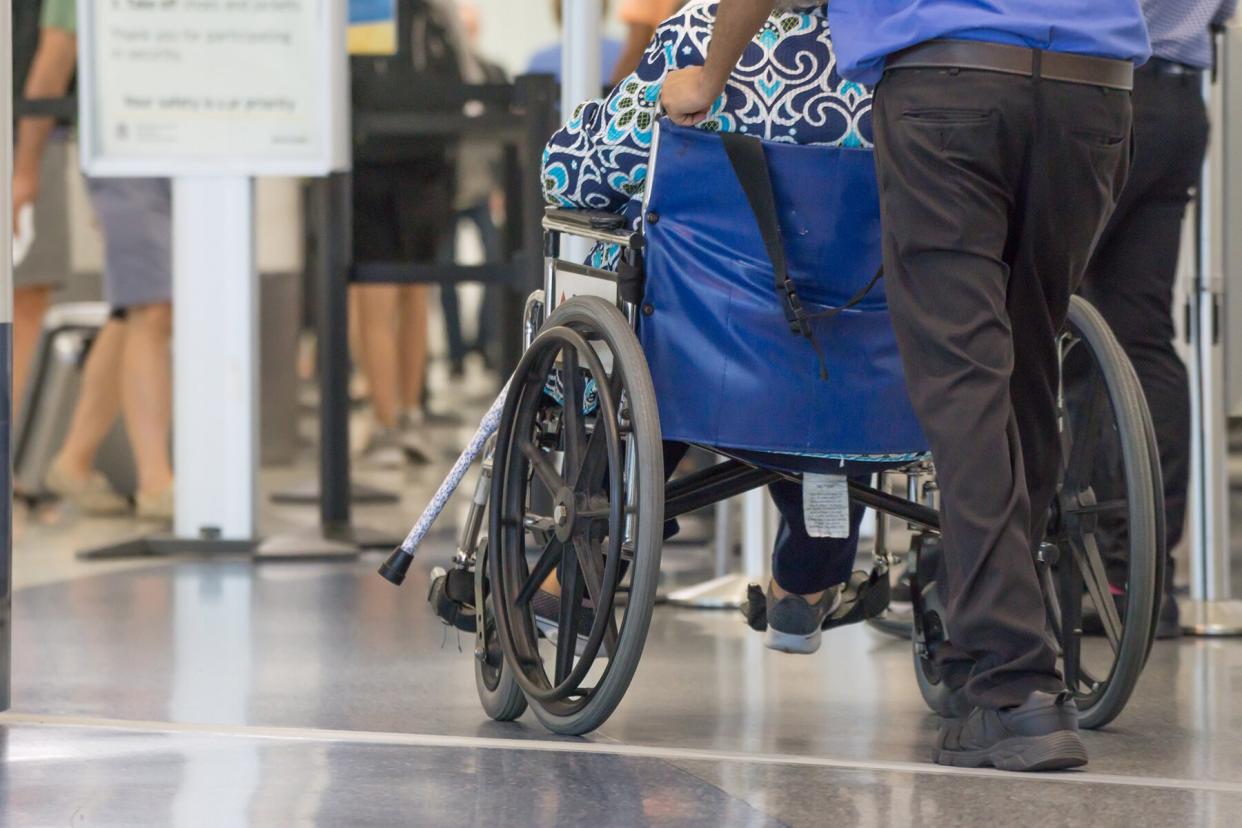The Department of Transportation Just Made Air Travel More Accessible for Disabled Passengers — Here's How

XiFotos/GETTY IMAGES
The U.S. Department of Transportation published the first-ever bill of rights for airline passengers with disabilities on Friday, outlining fundamental rights.
The Airline Passengers with Disabilities Bill of Rights summarizes the rights of air travelers with disabilities and applies to travelers with a "physical or mental impairment that permanently or temporarily impacts a major life activity such as walking, hearing, or breathing," according to the DOT. The document, which includes basic rights like airlines not refusing transportation due to a disability, is applicable on all flights on U.S. airlines as well as on flights to or from the U.S. by foreign airlines.
The text, which includes 10 specific rights, was developed with input from several stakeholders, including representatives of passengers with disabilities, national disability organizations, air carriers, airport operators, wheelchair manufacturers, and a national veterans organization representing disabled veterans.
"Today's announcements are the latest steps toward ensuring an air travel system that works for everyone," U.S. Transportation Secretary Pete Buttigieg said in a statement. "Whether you're a parent expecting to sit together with your young children on a flight, a traveler with a disability navigating air travel, or a consumer traveling by air for the first time in a while, you deserve safe, accessible, affordable, and reliable airline service."
The 10 protected rights include: the right to be treated with dignity and respect, the right to receive information about services and aircraft capabilities and limitations, the right to receive information in an accessible format, the right to accessible airport facilities, the right to assistance at airports, the right to assistance on the aircraft, the right to travel with an assistive device or service animal, the right to receive seating accommodations, the right to accessible aircraft features, and the right to resolution of a disability-related issue.
Traveling with a disability may sometimes take a few extra considerations, but the Minneapolis-St. Paul International Airport is aiming to make it easier, installing a mock cabin earlier this year to allow travelers with sensory, physical, or cognitive disabilities to experience an aircraft before actually boarding their flight.
Alison Fox is a contributing writer for Travel + Leisure. When she's not in New York City, she likes to spend her time at the beach or exploring new destinations and hopes to visit every country in the world. Follow her adventures on Instagram.

